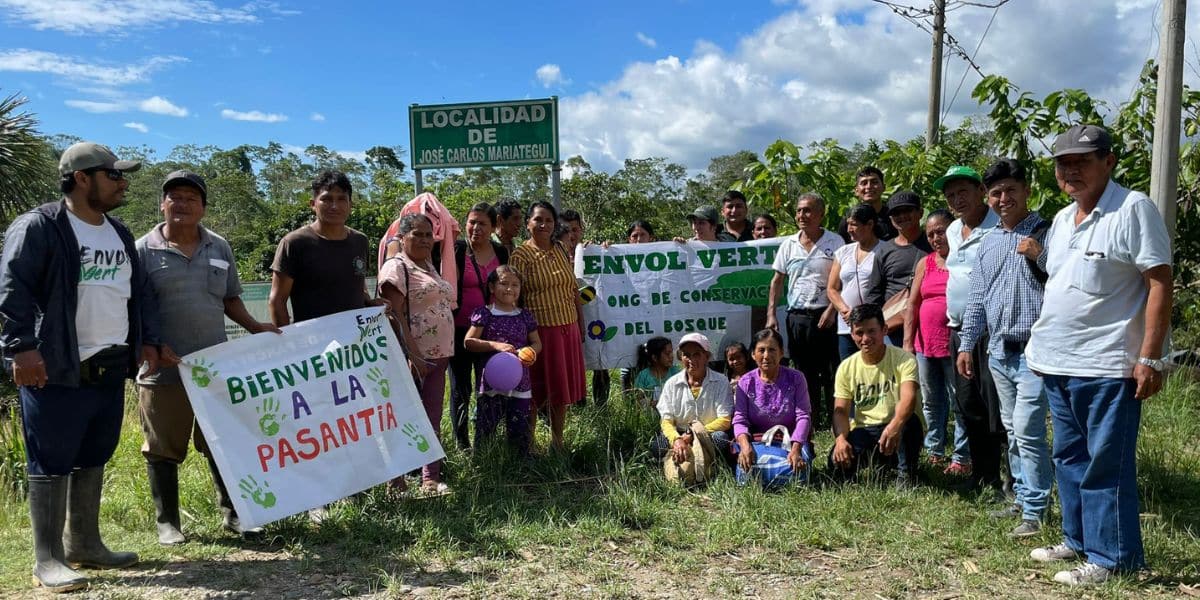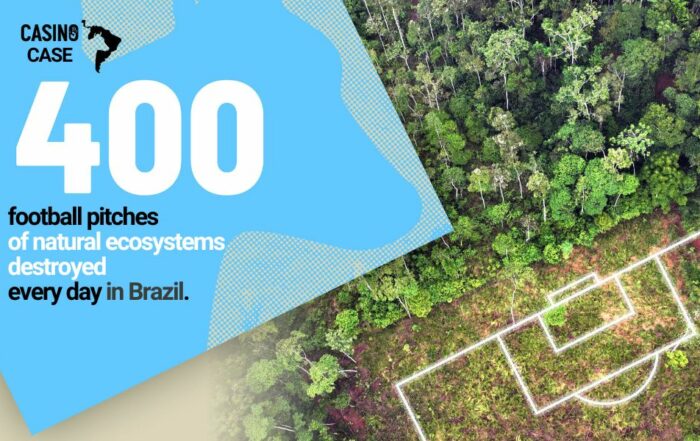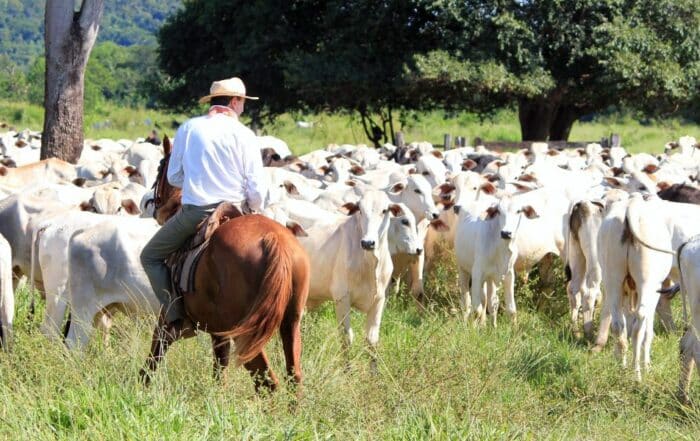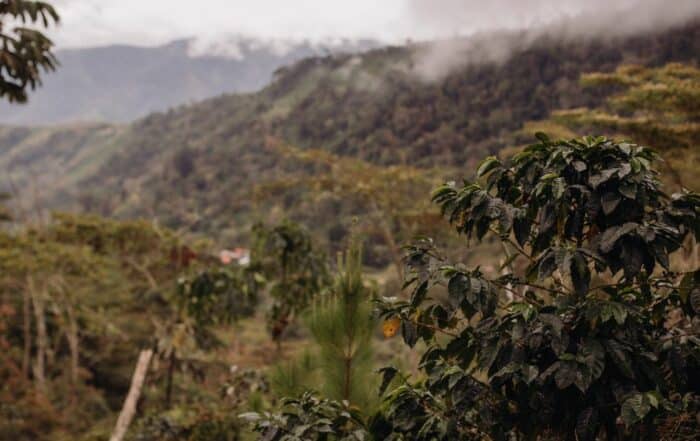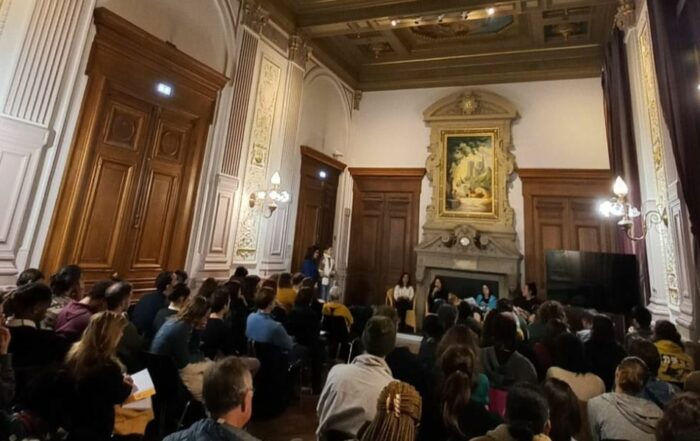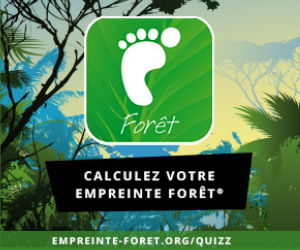On Saturday, October 26, 2024, the last internal internship of the year took place in José Carlos Mariátegui village. This day marked a significant moment for the 28 participants (5 children, 13 women and 10 men), who were able to appreciate the rewards of their work. After two years of intensive training in meliponiculture (stingless beekeeping), they were able to harvest their first boxes of honey from native bees.
A local brand for honey: “Nativa Miel”
The commercialization of honey from the Tetragonisca angustula bee is underway, and the participants unanimously chose the brand name ‘Nativa Miel’. The name was enthusiastically chosen, reinforcing their commitment to this new source of income. The decision also underlines the importance of a collective identity in promoting local products.
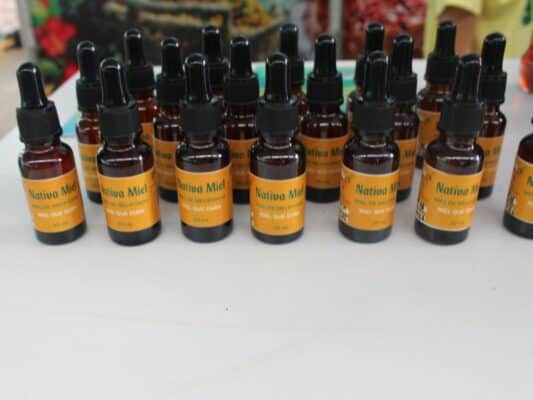
Strengthening cooperative capacities and best practices
During the day, participants took part in essential training. The first workshop focused on cooperativism, a key partnership model for a lasting and equitable organization, addressing fundamental questions such as why and how to partner. Next, a training on good manufacturing practices helped strengthen the skills needed to ensure product quality and safety, which is essential for accessing a formal market.
Harvesting workshop: knowledge transfer with a meliponiculture expert
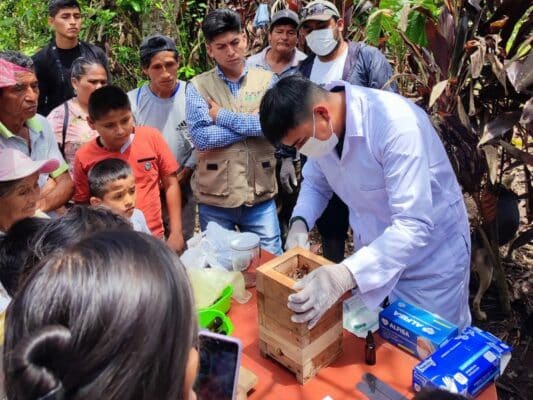
A special session on harvesting Tetragonisca angustula honey was led by specialist Miler Eduard Duran Bartolomé, park ranger of the Carpish Montane Forest Regional Conservation Area. This workshop provided participants with practical training, complementing the knowledge acquired during the year in meliponiculture and allowing them to master the harvesting processes with two different honey extraction techniques.
An inspiring exchange of experiences between communities
The internship also included a visit to the José Carlos Mariátegui community nursery. This moment of exchange allowed other groups to observe the organized and collective work of this community, which proved to be inspiring and motivating. Visitors witnessed the production of biol (an organic fertilizer), the distribution of tasks and strategies to overcome organizational challenges. This mutual inspiration renewed the motivation to continue environmental conservation efforts.
For the youngest children: conservation and gender equality education
For the youngest children, there was a drawing area with conservation and gender equality themes. This initiative aims to raise awareness among children from an early age, allowing them to actively participate in the training sessions.
The first fruits of the harvest: towards a sustainable economic alternative
With the first harvest, the group plans to take advantage of the forestry week for the first official sale of “Nativa Miel”. The proceeds from this sale will be used to invest in new boxes for the bees, as well as allowing families to buy Christmas gifts for their children. This is a moment of joy that marks the first concrete results of this sustainable economic alternative for the families of José Carlos Mariátegui.
Conclusion
This last internship of the year represents the fruit of two years of collective effort and the implementation of concrete practices towards an alternative, viable and environmentally friendly economy. This project reflects the importance of well-structured cooperative work and the hope of establishing sustainable sources of income at the local level.
What a joy and pride for the participants to see the first results and to glimpse a promising future for their communities!
On Saturday, October 26, 2024, the last internal internship of the year took place in José Carlos Mariátegui village. This day marked a significant moment for the 28 participants (5 children, 13 women and 10 men), who were able to appreciate the rewards of their work. After two years of intensive training in meliponiculture (stingless beekeeping), they were able to harvest their first boxes of honey from native bees.
A local brand for honey: “Nativa Miel”
The commercialization of honey from the Tetragonisca angustula bee is underway, and the participants unanimously chose the brand name ‘Nativa Miel’. The name was enthusiastically chosen, reinforcing their commitment to this new source of income. The decision also underlines the importance of a collective identity in promoting local products.

Strengthening cooperative capacities and best practices
During the day, participants took part in essential training. The first workshop focused on cooperativism, a key partnership model for a lasting and equitable organization, addressing fundamental questions such as why and how to partner. Next, a training on good manufacturing practices helped strengthen the skills needed to ensure product quality and safety, which is essential for accessing a formal market.
Harvesting workshop: knowledge transfer with a meliponiculture expert

A special session on harvesting Tetragonisca angustula honey was led by specialist Miler Eduard Duran Bartolomé, park ranger of the Carpish Montane Forest Regional Conservation Area. This workshop provided participants with practical training, complementing the knowledge acquired during the year in meliponiculture and allowing them to master the harvesting processes with two different honey extraction techniques.
An inspiring exchange of experiences between communities
The internship also included a visit to the José Carlos Mariátegui community nursery. This moment of exchange allowed other groups to observe the organized and collective work of this community, which proved to be inspiring and motivating. Visitors witnessed the production of biol (an organic fertilizer), the distribution of tasks and strategies to overcome organizational challenges. This mutual inspiration renewed the motivation to continue environmental conservation efforts.
For the youngest children: conservation and gender equality education
For the youngest children, there was a drawing area with conservation and gender equality themes. This initiative aims to raise awareness among children from an early age, allowing them to actively participate in the training sessions.
The first fruits of the harvest: towards a sustainable economic alternative
With the first harvest, the group plans to take advantage of the forestry week for the first official sale of “Nativa Miel”. The proceeds from this sale will be used to invest in new boxes for the bees, as well as allowing families to buy Christmas gifts for their children. This is a moment of joy that marks the first concrete results of this sustainable economic alternative for the families of José Carlos Mariátegui.
Conclusion
This last internship of the year represents the fruit of two years of collective effort and the implementation of concrete practices towards an alternative, viable and environmentally friendly economy. This project reflects the importance of well-structured cooperative work and the hope of establishing sustainable sources of income at the local level.
What a joy and pride for the participants to see the first results and to glimpse a promising future for their communities!

